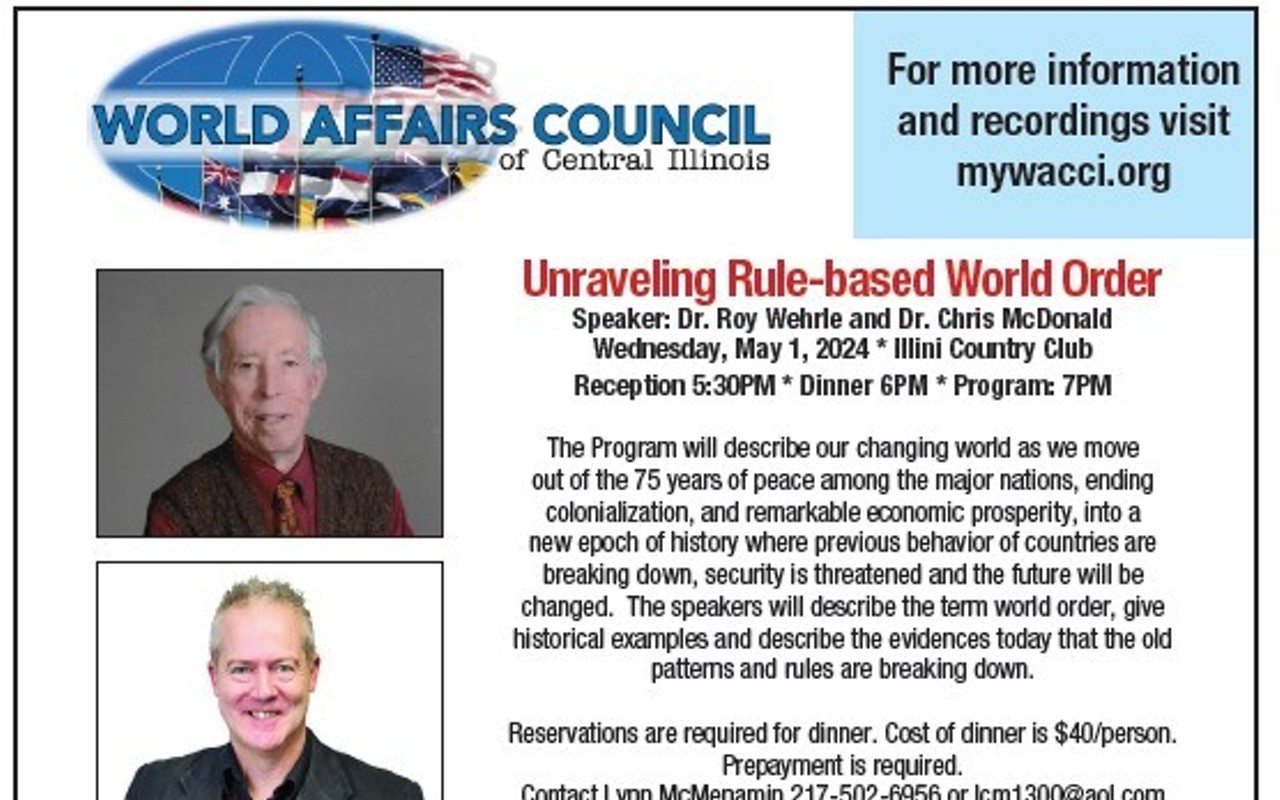We have some real positives in our community, not the least of which is that we are at the intersection of Interstates 55 and 72. This location, with with east-west and north-south interstates, should be advantageous for business development. We have a vibrant and growing medical community, with a medical school to develop the next generation of physicians. We have higher education in Lincoln Land Community College and University of Illinois Springfield, historic sites for tourism, a beautiful lake for recreation, as well as many parks and entertainment venues. We have some legacy businesses, such as O'Shea Builders, Henson Robinson, Troxell and Bunn, as well as great local community banks.
So why does it feel like such a worn-out and tired city?
One reason may be our dependence on government to determine our city's future. By moving jobs in and out of Springfield, the state of Illinois has a real impact on our economy. Springfield has its own utility, which may or may not be an advantage to our citizens, as the electric rates we are paying seem to be substantially higher than other Midwest cities. The pension system for our municipal employees seems to be mathematically unsustainable, but for some reason cannot be adjusted to the realities of the economy in 2021. The failing infrastructure, including sewers and streets, seem to get Band-Aid fixes, like asphalt overlays and crisis management when water mains break. Add to this an apparent aversion to new business developments, with a punitive and cumbersome building and inspection code, that seems to repel business from outside developers. Add increases in sales tax, property tax and a host of new state taxes, and maybe we start to see a reason for the worn-out and tired disposition.
Neither state nor city government can solve our problems by continuing along the same path that has brought us to this crossroad. The community, with its lack of confidence in our elected officials, cannot expect change if we do not demand change in the way we are governed.
Every week I speak with business owners who are willing to invest in our community, with no guarantee that their investment will grow. They are truly committed to the betterment of Springfield by creating more jobs, generating more tax revenue and working side by side with our social service agencies. These are the people who have the ability and the incentive to envision and execute a plan to revive our tired city. We need to move ourselves away from a dependence on government, and towards a cooperative approach of business, government, education and citizens.
An example of this approach was the plan for a permanent facility to house and treat the homeless. It was a brilliant plan, coordinated with necessary stakeholders, funded by local entities, and then shot down by local government in response to opposition from a special interest group. The work to identify and solve problems is hard enough, without adding the complexity of political song and dance to make sure that every possible activist has signed off on the plan.
The way to change a deteriorating problem is to first stop the motion in that direction. Then have the patience and courage to change direction towards a future that is strategically planned, fiscally sound and socially responsible, knowing that you will not please all of the people all of the time.
Len Naumovich is the founder and president of Primo Designs. A lifelong resident of Springfield and a 36-year member of the local business community, he is keenly interested in continuous improvement – personal improvement, business improvement and civic improvement. Len can be reached at [email protected].



















